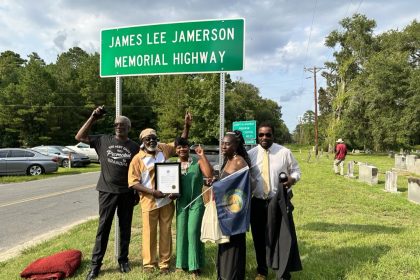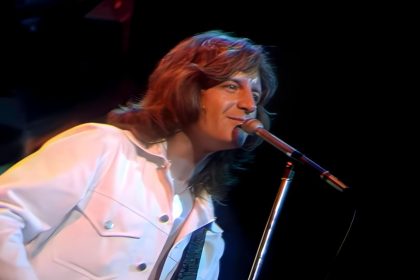Tribute Album Pays Homage to Tragic ’70s Icon, Supports Mental Health Services

WASHINGTON — To those of a certain age, the music of Badfinger is an indelible part of their having grown up in the 1970s.
From 1970 through 1972 their string of hits, almost all of them driving rock ballads written by lead vocalist and guitarist Pete Ham, made them one of the most popular bands on earth.
Harry Nilsson plucked the band’s “Without You” from their 1970 “No Dice” album. His version of the song, written by Ham and Badfinger bassist Tom Evans, pushed their work into the stratosphere of success.
Since that time the song has been recorded more than 180 times, and 24 years later Nilsson’s smash became a number one hit all over again for Mariah Carey. In 2021, Rolling Stone included “Without You” in its compendium of the 500 greatest songs of all time.
But behind all the apparent success, a tragedy of epic proportions was unfolding, one that would forever cast Badfinger as perhaps the most star-crossed band of the rock era and cast a spotlight on how little was done to bolster the mental health of very young and very talented artists.
The reality was, in every aspect but writing songs and performing, every apparent break the band had was a portent to a nightmare.
Discovered by an inexperienced band manager named Bill Collins, the group originally known as The Iveys, was whisked to London from their native Wales, and immediately set up shop in his townhouse, honing the songs they hoped would land them a record deal.
To make some spending money in the meantime, Collins booked the band to play London’s Marquee Club, inviting the city’s music industry bigwigs to come see them. Among these was Mal Evans, the longtime Beatle roadie, who was now serving as an A&R man at their newly minted Apple Records.
With Evans’ enthusiastic support, The Iveys were soon signed to the label, but the individual Beatles, who at that point had a hand in nearly everything Apple did, said they didn’t hear a hit single in the batch of songs The Iveys had written and urged the band to keep trying.
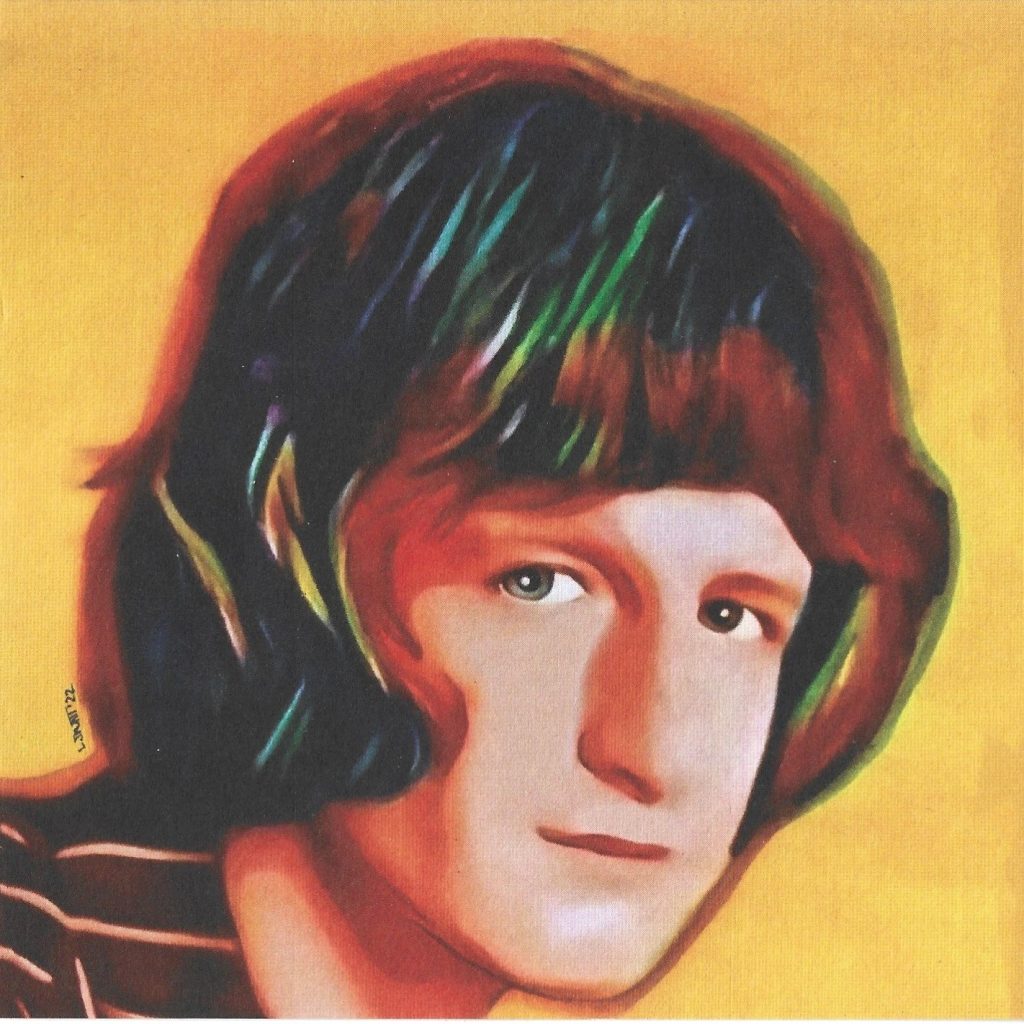
In the meantime, the Beatles were beginning their long breakup, essentially a war of attrition pitting John Lennon, George Harrison and Ringo Starr against Paul McCartney. As part of the fallout, the Lennon-Harrison-Starr trifecta began pushing back at McCartney’s song offerings.
One of these, “Come and Get It,” had originally been written for a McCartney movie project, “The Magic Christian.” However, he soon began to think it was too good to be “thrown away” in a movie and brought it to the other Beatles. They rejected it, in part, because they interpreted his actions in the most negative light at the time. In their view, he was offering them a song he didn’t consider good enough for the movie.
McCartney, completely polished demo in hand, immediately offered the song to Badfinger with himself acting as their producer. The only proviso was that they play the song exactly as he did on the demo.
“This is a hit,” he assured them. Who were they, now named Badfinger, to argue with him? And McCartney did prove correct, the record reached the top 10 in both the United Kingdom and the United States.
The problem was it also hung an albatross around their necks that would last throughout their active career — though fans and critics loved them, there was also a feeling that the band was little more than a Beatles knockoff.
So quickly did this become evident that when George Harrison offered Badfinger his “It Don’t Come Easy,” they rejected it. It later became a No. 1 smash hit for Ringo Starr.
Like most bands, Badfinger’s early contracts were hardly advantageous to them, but a common tradeoff at the time was that you allowed yourself to be a little ripped off for the sake of establishing an ultimately lucrative career.
In Badfinger’s case, their subsequent contracts and the legal hassles that stemmed from them went from bad to devastating.
As their records rose up the charts, the desire to get to America and tour to capitalize on their success was intense. It was then that they fell into the clutches of a business manager named Stan Polley.
According to Dan Matovina, author of “Without You: The Tragic Story of Badfinger,” Polley, a one-time attorney, had taken to preying on young musical acts and songwriters by promising them all they’d need to take care of was “their art” and he would handle everything else.
In Badfinger’s case, the contracts they signed with Polley left them destitute, while he and others enjoyed the fruits of their success.
Despite their living in abject poverty while their records raced up the charts, the band soldiered on, unwilling to admit or believe they’d been duped.
Pete Ham, always the most sensitive member of the band, began to show growing signs of mental illness as the months went on, among other things, putting lit cigarettes out on his arms and hands.
Things grew even more dire in late 1974, when Ham learned his girlfriend, Anne Herriot, was expecting a child. Determined to make a home for his new family, he overdrew his meager bank account to buy a home, promising to make everything straight with the bank once an expected cash advance from Badfinger’s new record company, Warner Brothers Records, was sent to him.
The advance vanished, and on the night of April 23, 1975, Ham received a call from the United States telling him that all his money had disappeared.
Later that night he met Tom Evans for drinks at the White Hart Pub in Surrey. While there, the two tried to make sense of the situation while drinking heavily.
Dropping Ham off at home at about 3 a.m., Evans believed his friend and bandmate had rebounded a bit, but one thing nagged at him as he drove away.
Ham had slapped the hood of Evans’ car and said, “Goodbye.”
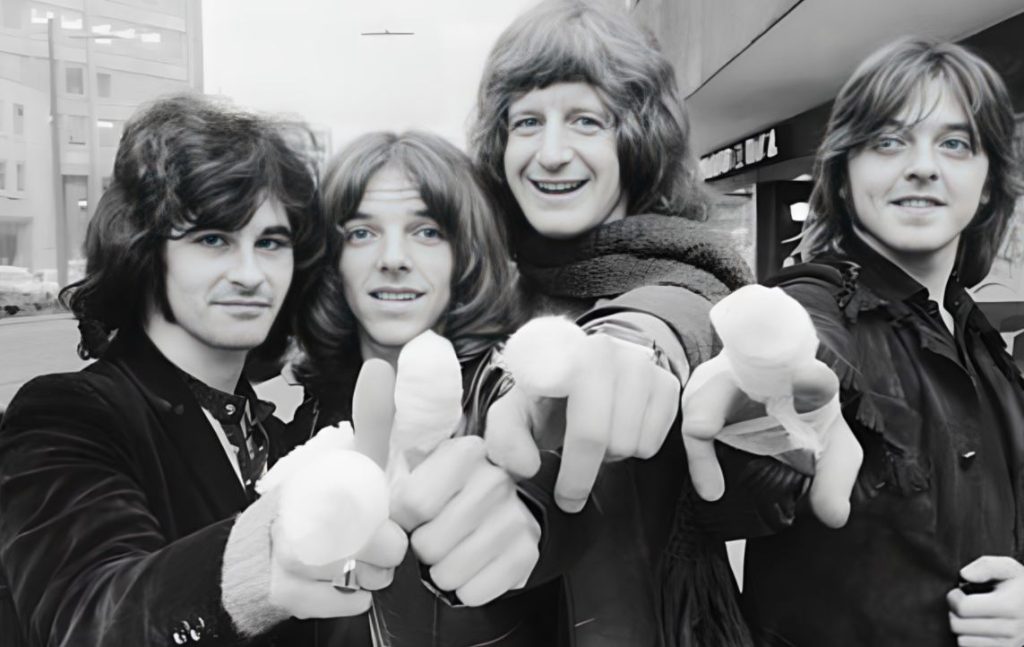
“He never says, ‘Goodbye,’” Evans thought as he drove on. “He always says, ‘Good night.’”
Hours later, Ham was found hanging from a rope in the garage studio next to his home. In a suicide note addressed to Herriot, he said in part, “Anne, I love you. … I will not be allowed to love and trust everybody. This is better. Pete.”
As a postscript, he added, “Stan Polley is a soulless bastard. I will take him with me.”
Ham was cremated, his ashes spread in the memorial gardens at the Morriston Crematorium, Swansea, Wales. His daughter Petera was born one month after his death.
Badfinger tried to continue, but was beset by legal battles with Polley, a slew of other band contracts and intra-band conflicts over money. So tangled was the mess that most of the royalties owed the individual band members were withheld by the numerous parties involved, not to be fully paid out for more than a decade.
Evans, unable to get over Ham’s death, hanged himself in his garden on Nov. 19, 1983, at the age of 36. The previous night he got into a heated argument with former Badfinger bandmate Joey Molland, over royalties for the song “Without You.”
Though the band’s story is tragic — drummer Michael Gibbins also died young, of a brain aneurysm in October 2005 — Badfinger continues to have a remarkable afterlife.
The band’s “Baby Blue” experienced a resurgence of popularity in 2013 when it was featured during the closing scene of the “Breaking Bad” series finale. In the weeks that followed, it became a top-selling song on iTunes.
On top of that, the band continues to be a fixture of several SiriusXM channels, including its 70s on 7, and Little Steven’s Underground Garage.
But for fans of Pete Ham, perhaps the sweetest turnabout of all was the release, earlier this summer, of “Shine On: A Tribute to Pete Ham” released by the Y&T Music record label.
For Rich Ulloa, the founder of the record label, the creation of the album was almost literally the fulfillment of a lifelong dream.
“Oh I’ve been a fan of Badfinger for as long as I can remember,” Ulloa told The Well News last week. “I got to see them play live twice, in 1972 and 1973, and as much as I loved Badfinger, it was always Pete Ham whose music drew me in,” he said.
“I mean, I bought all of their albums, and while Joey Molland is great and Tommy Evans is amazing, there’s just something about Pete’s work that I felt so connected to,” Ulloa said.
“I loved his voice. He’s like my all-time favorite musician — though I’m not saying he’s the best; I’m also a Beatles fanatic and a Bob Dylan fanatic — but Pete Ham just drew me in. … His particular body of work really speaks to me.”
At the same time, Ulloa said he was obviously drawn to Ham’s tragic story, finding that the more he read about the late musician, the more he liked him.
“He was the ultimate team player throughout all of their difficulties, and at the same time, he was, like, a reluctant rock star … all he wanted was to be able to write and have a career,” he explained.
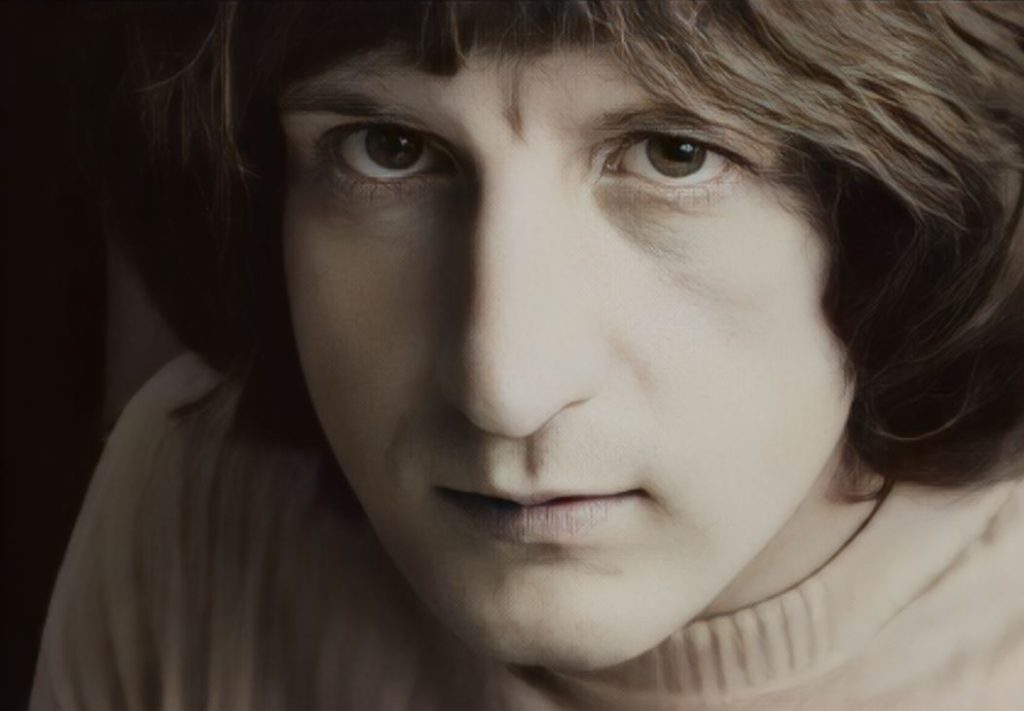
Ulloa said, like most fans he learned of Ham’s suicide almost by accident. He’d just taken out a subscription for Rolling Stone magazine, and a small blurb announcing Ham’s death was in the first issue he received.
“I couldn’t believe it,” he said, the shock still palpable in his voice more than four decades later.
“And it was just a little blurb, not even on the front page, because while Badfinger had been huge, Pete wasn’t a household name like Jimi Hendrix or Janis Joplin were when they died,” Ulloa said.
“I read about what happened two weeks after the fact and I was just crushed,” he added.
By the time he was 26, Ulloa had opened his first record store, Yesterday and Today Records, eventually expanding it into a small chain. Among the artists who frequented the store was The Mavericks, a country band that happened to be based in Miami, Florida.
“I became a huge fan of The Mavericks and I’m friends with their manager, so I said, ‘Why don’t we put out a record, and maybe it will get a major label?’” Ulloa said.
“Lo and behold, we put out a record and the next thing we knew they were signed to MCA Records. Then I found another artist that I loved, Mary Karlzen, and after we worked with her, she got signed to Atlantic. So all of a sudden our tiny little record label had a little momentum and since then we’ve put out something like 42 releases, a few of them tribute albums like the one for Pete Ham.”
Ulloa said the idea for a Pete Ham tribute album first occurred to him about 20 years ago, a time when he felt he lacked the resources and industry contacts to pull it off. “Then about two or three years ago, I said to myself, ‘If I’m going to do it, I better get down to it.’ And it took me two years to finish the project.”
Ulloa’s concept was to press a single compact disc containing somewhere between 15 and 18 songs, “but momentum grew after the project started and I decided, ‘You know what, I’m going to go all the way and take every song Pete ever wrote and make it a double CD.’
“It took a lot of time,” he said. “I had to have contact with every artist, and dealing with each artist requires a lot of emails and phone calls and such to get them involved.
“And then, because of the way it came together with most of the artists sending me their finished recordings, there was a lot of mixing involved. Plus, a couple of artists recorded songs that weren’t up to the quality I needed, so I had to find alternate artists on a couple songs.
“So that was a lot of work, but at the same time, I wasn’t in a hurry. For the most part I was relying on the artists because they were all recording the songs on their own and giving me the finished master. The exceptions were the six or seven artists on the album that I’d worked with previously. In those cases, I was actually more directly involved in the studio.”
In the press release for the album, all net profits from which will go to Mental Health America of Southeast Florida, Stan Lynch, drummer for Tom Petty and the Heartbreakers, described working on the album as a searing learning experience.
Lynch, who contributed to three tracks on “Shine On,” said, “The more I learned about Badfinger, the more upset it made me, because they were so rich with promise.
“It’s not just a cautionary tale — it’s truly heartbreaking,” he added.
It’s appropriate then that the two-CD set opens with “No More,” a song long considered one of two audio suicide notes Ham recorded as demos shortly before taking his own life.
Here, it’s performed by Mary Lee Kortes, a longtime favorite of fans of Vin Scelsa’s much-missed “Idiot’s Delight” radio show, with an assist from the great Eric Ambel on guitar.
Together they turn Ham’s pensive meditation into a walloping roots-rock inflected alt-country track, setting the stage for much of what follows.
Dan Baird, formerly of the Georgia Satellites, follows with a raucous “I Can’t Take It” with his new band The Chefs, while Shelby Lynne turns “Day After Day” into a gently swaying but full-throated declaration of love and devotion.
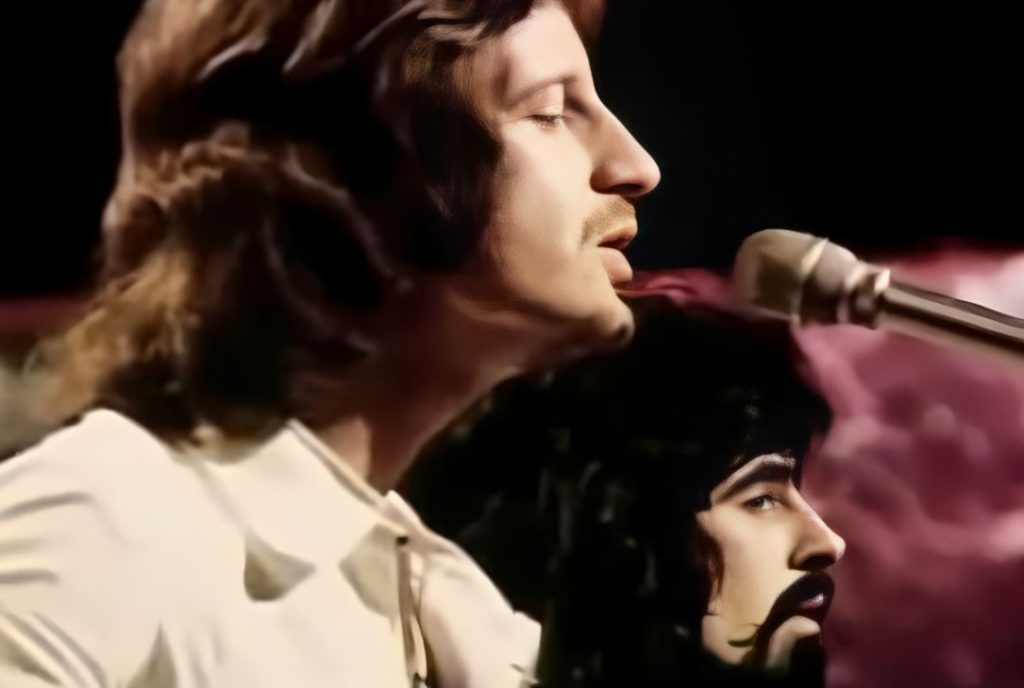
“No Matter What” is also the only tune that shows up twice on the album, the second version, by The Speaker Wars, getting an assist from Indian vocalist Susmita Datta, who reimagines the classic power ballad as a psychedelic Hindustani dream.
Other highlights include Mic Harrison and the High Score’s rocking rendition of “Meanwhile Back at the Ranch,” Wreckless Eric and Amy Rigby’s moving “Midnight Caller” and Melanie’s heartbroken turn on “Without You.”
Additional noteworthy tracks are performed by Dennis Diken of The Smithereens, Mary Karlzen and Diane Ward.
Describing how he matched artists to songs, Ulloa said the process was “a balancing act.”
“For about half the songs, I definitely had a specific song in mind of the artist, and for most of the rest, I had maybe two songs in mind,” he said.
“The other thing is, you want to have the greatest quality recordings you can get, but you also want to have some artists with name recognition that will also help bring attention to the project,” Ulloa continued.
“People like Shelby Lynne and Dan Baird are high-profile artists and it was great to get them on board. At the same time, they were really, really into it,” he said. “I’ve known her producer, Ben Peeler, who was one of the founding members of The Mavericks, for over 30 years, and I reached out to him and asked if she’d do ‘Day after Day,’ and his response was, ‘She’d love to do it.’
“Stan Lynch because … I have a longtime friend, Bill DeYoung, who has written liner notes for Rhino Records and many major label releases, and when I told him about this project, he said, ‘Well, do you know Stan?’ And I said, I wish I did.
“Well, Bill said, ‘I’ve talked to him and he’s a huge Badfinger fan.’ So he introduced us via email and Stan got back to me immediately and was just very excited to be involved. He said he’d just been listening to Badfinger and learning what a tragic story it was.
“The Speaker Wars is his new band, and he put me in touch with their singer and together they picked “No Matter What” … this was very early on in the project.
“Then Stan said, ‘Would you be interested in having Dan Baird on the album?’ And I was like, ‘Are you kidding me?’ So every artist that appears on this tribute has a story attached to them,” he said.
Ulloa said of all the artists on the tribute album only two were largely unfamiliar with Badfinger’s music before they got involved in the project.
“The first was the Sweet Lizzy Project, a band from Cuba that relocated to Nashville five years ago. The lead vocalist had heard “Without You,” but that was the extent of their knowledge of Badfinger. They do “Perfection” on the album and did a great job with it.
“Similarly, Amanda Green, a pianist I’ve worked with before, also was unfamiliar with much of Badfinger’s work, but she threw herself into learning “Name of the Game,” practicing the song for a month before we brought her into the studio. And again, it came out great, so I was very happy,” he said.
The album has already sold out its first pressing and is now into its second. Several tracks from “Shine On” have also been picked up by SiriusXM radio, appearing across six stations and counting as this article goes to press.
Ulloa, who was in New Orleans, Louisiana, for a speaking engagement when he spoke to The Well News, could hardly contain his excitement about the project and the success it is enjoying.
Asked if he could sum up his feelings for Badfinger all these years later in a single sentence, Ulloa struggled.
“You know that power chord right at the beginning of “Baby Blue”? That still has the same effect on me as it did then. But that’s Joey Molland, whose contribution to Badfinger and where they were headed — he joined with their second album — cannot be understated,” he said.
“As for Pete Ham … well, I love songs. I’m all about melody and songwriting. But I also like music with power as well. And his music had all of that,” he continued.
“The first time I saw them play live they were opening for The Doors — this was after Jim Morrison died and they tried to carry on without him — and Badfinger just rocked the house. Oh my God, they were amazing,” he said. “The Doors were great, but Badfinger just came on stage with such an attitude. It was a great rock and roll show.
“The second time I saw them, six months later, they were headlining with The Chambers Brothers opening up, and I remember Pete playing piano for three or four songs and my being mesmerized by his performance. I was seeing my hero at the top of his game and I couldn’t believe it. And that was the beginning, really, of my being a lifelong fan. The music of Badfinger never left me.
“To this day, if I see a video of the band on YouTube featuring Pete Ham, I still get chills and goosebumps, even after all these years,” Ulloa said.
Dan can be reached at [email protected] and @DanMcCue





















